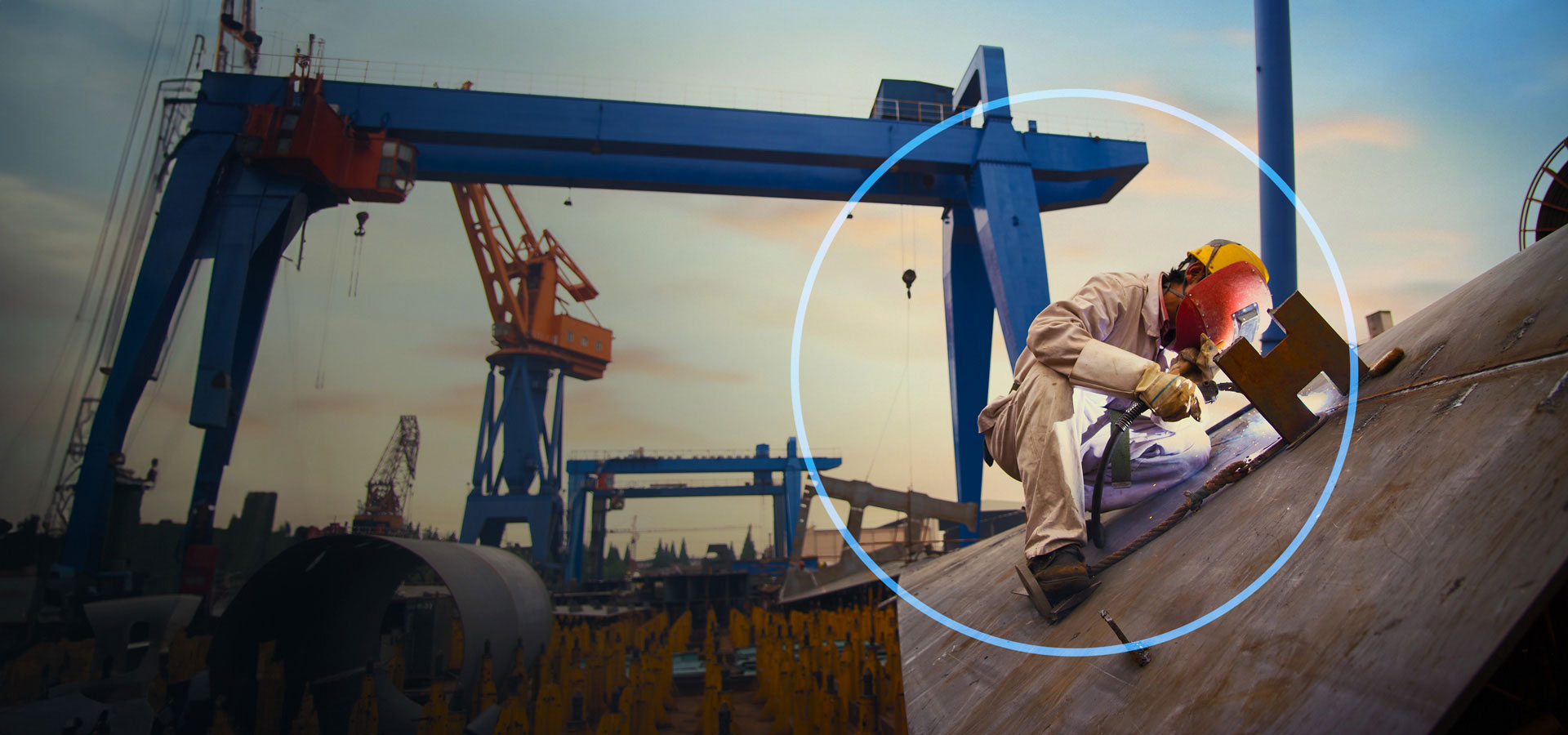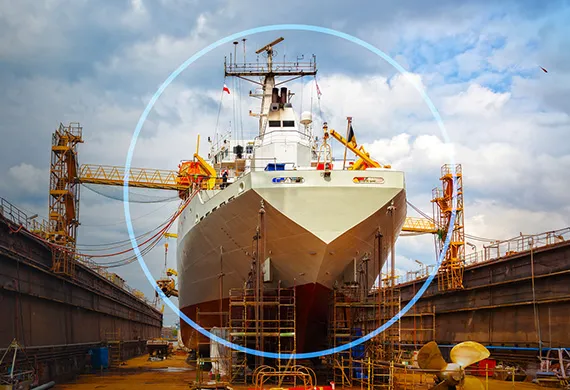Challenge: Workforce Management
The shipbuilding industry requires an experienced workforce to undertake highly complex projects like submarines or commercial vessels.
The shipbuilding industry is a dynamic and vital sector that plays a major role in global trade, transportation and defense. The workforce brings a wealth of experience and precision to the construction process. From welders and pipefitters to carpenters and riggers, their hands-on expertise shapes the intricate components that form a seaworthy vessel.
Unfortunately, shipyards are lacking experienced workers. With the retirement of experienced workers, knowledge capture is lost and cannot be used to train the new wave of labor. In addition, shipbuilding is not an attractive industry for the workforce because it is a heavy industry with a slower uptake in technology and innovation.
The Korea Offshore & Shipbuilding Association forecasts that its shipbuilding industry will face a shortage of about 14,000 workers by the end of 2023 and 45,000 additional workers would be necessary to deliver secured orders.
Accelerate Manufacturing Execution
Know-how is captured with model-based manufacturing, allowing for more efficient knowledge transfer and agile manufacturing for new product introduction. A clear example of model-based manufacturing is 3D work instructions, which result in faster and more efficient manufacturing execution.
Model-based manufacturing also supports the deployment of manufacturing automation and lean manufacturing. Today, many shipyards are using Dassault Systemes solutions to deploy robotic processes such as:
Arc welding
Spot welding
Material handling
Painting
Monitor Shipyard Production Processes
Many shipyards have implemented Dassault Systèmes' Build For Sea Industry Solution Experience. This solution utilizes DELMIA Apriso as a manufacturing execution system (MES) to monitor and control shipyard production processes. With a lean management approach to the production plan, these processes include integrated quality control, material synchronization and maintenance.
Through the solution, shipyards can access real-time data-driven KPIs to:
- Measure productivity
- Better manage production lines, material flows and cycle times
- Enhance entire production systems
- Drive real-time manufacturing processes
- Review production progress, inventory levels and product statu
Shipyard Manufacturing
Execution and Monitoring
With DELMIA Robotics, many shipyards now use robotics for a variety of tasks. This development leads to better workforce management by allowing a skilled workforce to focus on high-added-value tasks. Additionally, virtual commissioning ensures smooth production on the shop floor while new programs are being developed and tested.
Implementing robots in the shipyard will shorten the welding time by two-thirds and save about $9.4 million annually. One of the world's three biggest shipyards uses the caddy, a 16-kilogram robotic arm, to weld steel parts while constructing LNG commercial carriers. This robotic arm lets the shipyard execute large welding steel structures in a confined space. Automating this process has helped the shipyard save approximately $3.4 million from the costs of building each gas carrier since 2016.
A major naval shipyard is leveraging DELMIA Augmented Experience for quality inspection. As a result, parts that used to take 45 minutes to inspect now take 10 minutes. This reduction corresponds to over 70% in efficiency improvement in the shop floor. At the same time, safety, quality and cost-savings are achieved – by optimizing training procedures and processes – enabling risk-free exposure to simulated risky tasks.
Ship Manufacturing Challenges
Today's shipyards face challenges on many fronts and must transform their process to stay competitive.
Challenge: On-Time Delivery of Ships
Delivering on time is not an option; it's a must for shipyards to stay profitable and remain competitive
Challenge: Optimizing Shipyard Infrastructure
Optimize shipyard infrastructure capacity to improve productivity and margin.
Smart Shipyards
Manage, control and optimize shipbuilding processes – from engineering to manufacturing – and meet customer demands for time, cost and quality.






